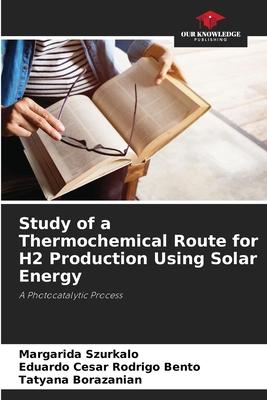A promising and environmentally friendly candidate to replace fossil fuels is hydrogen gas. It is usually produced by electrolysis, but an alternative for hydrogen production is thermochemical cycles, which have a low environmental impact and are economically viable, especially when used with solar energy. Based on a survey of the literature, it was decided to work with thermochemical cycles, as they have a high yield compared to electrolysis. The disadvantage is the need for a high temperature in the reduction stage, which is an endothermic process consuming a large amount of energy. The aim of this research was to demonstrate the feasibility of producing hydrogen from entirely renewable and inexhaustible sources, in this case using solar energy, which in turn would be applied to the dissociation of the water molecule (H2O) into hydrogen and oxygen molecules.
| FindBook |
|
有 1 項符合
szurkalo的圖書 |
 |
$ 2145 | Study of a Thermochemical Route for H2 Production Using Solar Energy
作者:Szurkalo 出版社:Our Knowledge Publishing 出版日期:2024-03-27 語言:英文 規格:平裝 / 52頁 / 22.86 x 15.24 x 0.3 cm / 普通級/ 初版  看圖書介紹 看圖書介紹
|
|
|
圖書介紹 - 資料來源:博客來 評分:
圖書名稱:Study of a Thermochemical Route for H2 Production Using Solar Energy
|





![塔木德:猶太人的致富聖經[修訂版]:1000多年來帶領猶太人快速累積財富的神祕經典 塔木德:猶太人的致富聖經[修訂版]:1000多年來帶領猶太人快速累積財富的神祕經典](https://media.taaze.tw/showLargeImage.html?sc=11100697818)





